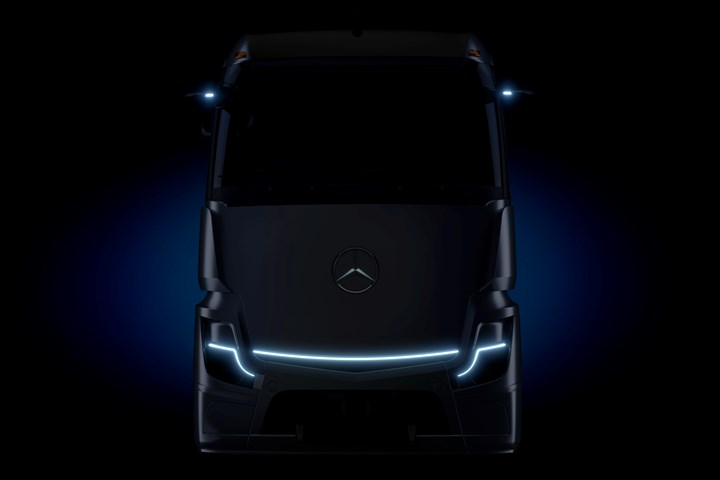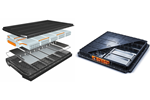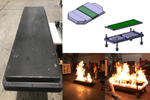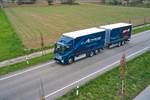Battery-electric eActros LongHaul to undergo real-world testing in 2023
Developed by Mercedes-Benz Trucks, eActros will be tested on the road by Amazon and Rhenus, with plans for series production in 2024.

Announced Sept. 15, , a division of Daimler Trucks (Stuttgart, Germany) aims to begin real-world testing of its battery-electric heavy-duty long-distance truck, named eActros LongHaul, as early as 2023. The first prototypes of the truck are currently undergoing intensive testing, the company reports, and will also be tested on public roads this year. Series production is planned for 2024.
According to the company, Amazon (Seattle, Wash., U.S.) and logistics provider Rhenus (Holzwickede, Germany) have each signed a letter of intent to test the vehicle as part of the test project “High performance charging for long-haul trucking” (HoLa), which is under the auspices of the German Association of the Automotive Industry (VDA, Eisenach, Germany). The aim of HoLa is the development, operation and scientific support of a high-performance charging infrastructure for battery-powered long-distance transport. Applications for real-world testing of eActros LongHaul include transport of sea containers and with a tarpaulin trailer.
The eActros LongHaul will reportedly have a range of around 500 kilometers on a single battery charge and be capable of high-performance charging. The truck’s batteries will employ lithium-iron phosphate cell technology (LFP), said to be characterized by a long service life and more usable energy.
Michael Scheib, head of product management at Mercedes-Benz Trucks, says “As with all our e-trucks, we will rely on early practical tests with customers for our eActros LongHaul. By doing so our engineers will be able to incorporate valuable knowledge gained from real-world operations — especially with regard to high-performance charging — directly into the development of the series-production vehicle. We are very pleased with the planned partnerships with Amazon and Rhenus.”
Andreas Marschner, VP of Amazon Transportation Services, says, “Amazon has pledged to become carbon neutral across the company by 2040, i.e. net zero. Transport is a core element on this journey. Due to today’s range constraints of batteries, recharging is a key challenge that we need to tackle. Building high power charging solutions is a promising approach and we are excited to test it with our partners.”
Sascha Hähnke, managing director of Rhenus Transport, says, “Of course, the so-called depot charging forms the basis for the use of battery-electric commercial vehicles. But if we want to use significantly higher numbers of e-trucks nationwide in Germany in the future and, above all, over longer distances, we will have to use every charging alternative. Of course, this includes high-performance charging on the road and, ideally, during the statutory rest periods. This is the only way to achieve optimal truck capacity utilization.”
Related Content
-
McLaren develops aerospace-inspired ART method for volume composite super car engineering
Automated rapid tape (ART) technique, already deployed at the MCTC and to be used for future McLaren models, is capable of producing lighter, stiffer and stronger carbon fiber structures with less waste.
-
Infinite Composites: Type V tanks for space, hydrogen, automotive and more
After a decade of proving its linerless, weight-saving composite tanks with NASA and more than 30 aerospace companies, this CryoSphere pioneer is scaling for growth in commercial space and sustainable transportation on Earth.
-
Thermoplastic composites: Cracking the horizontal body panel nut
Versatile sandwich panel technology solves decades-long exterior automotive challenge.
.jpg;width=70;height=70;mode=crop)





